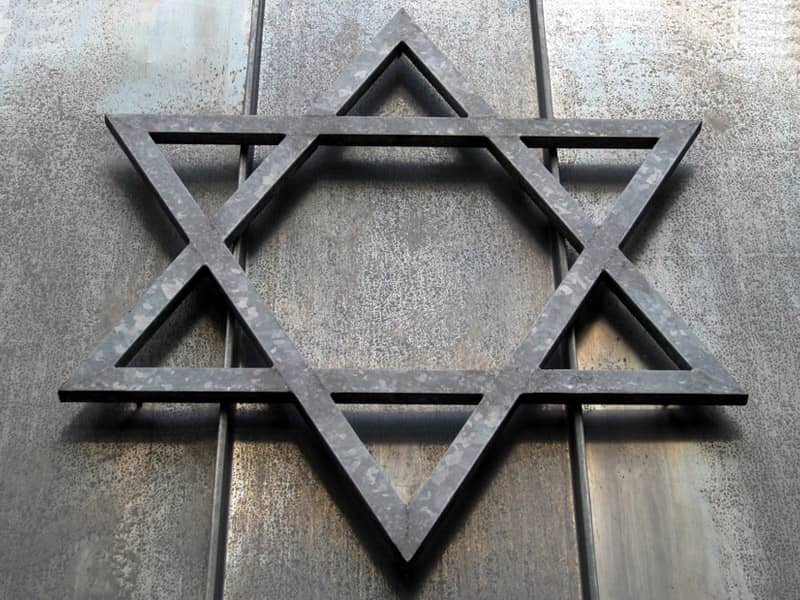What are "angels?" Angels are completely spiritual beings, whose sole focus is to serve their Creator.
On Yom Kippur, every Jew becomes like an angel. As the Maharal of Prague explains:
"All of the mitzvot that God commanded us on [Yom Kippur] are designed to remove, as much as possible, a person's relationship to physicality, until he is completely like an angel."
Just as angels (so to speak) stand upright, so too we spend most of Yom Kippur standing in the synagogue. And just as angels (so to speak) wear white, so too we are accustomed to wear white on Yom Kippur. Just as angels do not eat or drink, so too, we do not eat or drink.
Five Aspects
There are five areas of physical involvement which we remove ourselves from on Yom Kippur. They are:
1. Eating and Drinking
2. Washing
3. Applying oils or lotions to the skin
4. Marital Relations
5. Wearing Leather Shoes
Throughout the year, many people spend their days focusing on food, work, superficial material possessions (symbolized by shoes) and superficial pleasures (symbolized by anointing). These Yom Kippur fasting rules restore our priorities to what really counts in life.
As Rabbi Eliyahu Dessler writes:
"On Yom Kippur, the power of the evil inclination is muted. Therefore, one's yearning for spiritual elevation reasserts itself, after having lain dormant as a result of sin's deadening effect on the soul. This rejuvenation of purpose entitles a person to special consideration and forgiveness."
Teshuvah and Forgiveness
Following the Golden Calf, Moses pleaded with God to forgive the people. Finally on Yom Kippur, atonement was achieved and Moses brought the second set of Tablets down from Mount Sinai.
From that day forward, every Yom Kippur has carried with it a special power to cleanse the mistakes of Jews (both individually and collectively) and to wipe the slate clean. Though while Yom Kippur atones for transgressions against God, this does not include wrongs committed against other human beings. It is therefore the universal Jewish custom - some time before Yom Kippur -- to apologize and seek forgiveness from any friends, relative, or acquaintances whom we may have harmed or insulted over the past year. THE FAST ITSELF
The Yom Kippur fast begins at sundown, and extends 25 hours until the following nightfall.
The afternoon before Yom Kippur, it is a special mitzvah to eat a festive meal.
As far as making your fast easier in general, try to pace your intake throughout the previous day by eating something every two hours. At the festive meal itself, eat a moderate portion of food so as not to speed up the digestion process. Also, don't drink any coffee or coke, because caffeine is a diuretic. Heavy coffee drinkers can also avoid the dreaded headache by slowly reducing the amount of coffee consumption over the week leading up to Yom Kippur.
After a meal we generally get thirstier, so when you complete the festive meal, leave some extra time before sundown to drink. Also, drinking lukewarm water with some sugar in it can help make you less thirsty during the fast. IN CASE OF ILLNESS If someone is ill, and a doctor is of the opinion that fasting might pose a life-danger, then the patient should eat or drink small amounts. The patient should try to eat only about 60 cc., and wait nine minutes before eating again. Once nine minutes have passed, he can eat this small amount again, and so on throughout the day.
With drinking, he should try to drink less than what the Talmud calls "melo lugmav" -- the amount that would fill a person's puffed-out cheek. While this amount will vary from person to person, it is approximately 80 cc., and he should wait nine minutes before drinking again.
How does consuming small amounts make a difference? In Jewish law, an act of "eating" is defined as "consuming a certain quantity within a certain period of time." Otherwise, it's not eating, it's "nibbling" -- which although it's also prohibited on Yom Kippur, there is room to be lenient when one's health is at stake.
The reason for all these technicalities is because eating on Yom Kippur is regarded as one of the most serious prohibitions in the Torah. So while there are leniencies in certain situations, we still try to minimize it.
Note that eating and drinking are treated as independent acts, meaning that the patient can eat and drink together during those nine minutes, and the amounts are not combined.
Having said all this, if these small amounts prove insufficient, the patient may even eat and drink regularly. In such a case, a person does not say Kiddush before eating, but does recite "Grace After Meals," inserting the "ya'aleh veyavo" paragraph.
Now what about a case where the patient's opinion conflicts with that of the doctor? If the patient is certain he needs to eat to prevent a danger to health, then we rely on his word, even if the doctor disagrees. And in the opposite scenario -- if the patient refuses to eat despite doctors' warnings -- then we persuade the patient to eat, since it is possible that his judgment is impaired due to illness. Wishing you an easy fast and a meaningful Yom Kippur!

